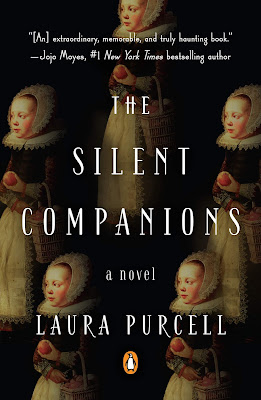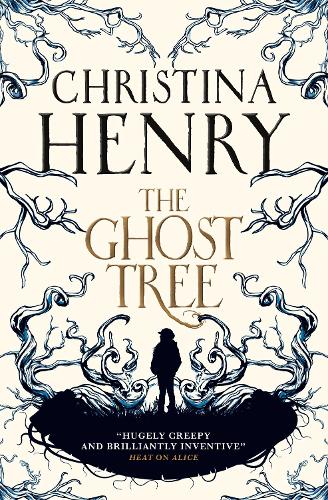It's not often that I run across a book that irritates the hell out of me, but The Silent Companions was one of them. I bought the book because it was part of a list of top horror novels, so I figured it was a safe bet. But tastes vary, and this one didn't melt the butter for me.
In short, The Silent Companions is a Gothic/Historical Horror about a house haunted by evil dwelling inside dummy boards. What are dummy boards? These are dummy boards: https://www.nationaltrust.org.uk/discover/history/art-collections/exploring-the-history-of-dummy-boards
The concept itself is brilliant. Dummy boards are creepy, and who in their right mind would want them hanging out in their house?
In addition to this fascinating concept, what else did the novel get right? The ending. Endings of far too many stories disappoint me for a variety of reasons. This one stuck with its Gothic Horrorness to the end and didn't pull any "happily ever after" or "there's hope for the future" crap.
MINOR SPOILER ALERT: evil wins, yay!
Now for the reasons this book drove me nuts.
This story had soooo much potential. The opening couple of chapters had me hooked. A woman in an 1860s asylum who has suppressed the horrors she's been through and a doctor who must help her remember to save her from the gallows. Did she commit the crimes she's accused of or not? Then a dive into the past to learn what happened. A rundown estate, a village of people who fear said estate because of its "witch," creepy painted cutouts of people moving around on their own, a 1630s dairy full of secrets. What's not to love here?
But I was surprised to find the book was so skinny when I pulled it out of the box. Hmm, must be tight writing, I thought. And I love novellas, no problem. But after those opening chapters, I started realizing the issue. Actually, 4 main issues that had me gritting my teeth:
1. TELLING. Soooo much telling. That's why the book is shorter than it probably should be.
About a quarter of the way through I started circling all the uses of "felt/feel." In fact, there are lists of emotions that the POV character was "feeling" from one moment to the next. This is one of my major pet peeves. Mainly because we're instructed OVER AND OVER not to do this, to find ways to SHOW how a character feels, with minimal TELLING of emotion words. How did this author get away with this? Who the hell is her editor that she/he didn't say, "Hey, this is annoying. You can dig deeper than this."
Because of this main issue, when the shit starts hitting the fan and the "companions" start showing up en masse, I started ROLLING MY EYES. Never what a writer wants their reader to do, right? (And this book is published by PENGUIN, who I expected to have elite standards and tastes, for the love of ARGH!)
Example, from page 124:
Sarah: "I don't mind telling you, it gave me the collywobbles."
Elsie: "I must admit, I felt a little strange myself." (my margin note: that's the best she can come up with?) She looked down. Strange was an understatement. Unravelled, opened up, exposed: they were more accurate words. (my margin note: please use them, author) Fear pushed so much out of a person...
(I got the impression that the author is feeling out this scene as she writes it, and is nailing down what the character Elsie feels as she goes along, and leaves that meandering in situ, rather than editing it later for stronger wording.)
I admit, there was ONE scary chapter where the POV character is running down a dark corridor with these dummy boards pursuing behind her, but writing that out causes me to laugh out loud. Just imagine it: People painted on wooden cutouts, so lifelike they are mistaken for real people until they're seen up close. "Oh, it's a painting!" Creepy and cool and unique, right? But then imagine these the things scraping along the floor, joggling side to side while chasing a human with legs--and somehow catching up with her. I can totally see how this idea might be inspired by a nightmare that woke the author up in a heart-pounding cold sweat. But it doesn't translate too believably into fiction.
(So I'm tempted to conclude, as Elsie's doctor did, that these were figments of her imagination from the beginning.)
2. modern language
The decades we're dealing with here are the 1860s and the 1630s. The diary entries (that explain the origin of the family curse) from the years before the English Civil War were especially annoying. Anne (the diarist) woulda been speaking/writing almost like Shakespeare. Certainly more like the characters in Dafoe's novels. As a lit major, my studies in these eras are thorough--I know what to expect! But the diary entries are written in modern style with a few words like "Fie," "Perchance" and "Aye" thrown in to remind us we're not in modern times. (at least Purcell didn't go so far as to use "okay" throughout the book *coughLydiaKangcough*).
This issue leads to everyone sounding the same. Should two characters living centuries apart write their stories with the same writing style/voice? Absolutely not. Elsie and Anne sound identical. Seriously? This lack of authenticity causes my suspension of disbelief to wither. I get it that writing in that antiquated style would be difficult to achieve, and time-consuming to get right. So, by all means, let's not make the attempt and slow down the presses, okay? Time is money. Chop, chop.
As an extension of this language issue, every once in a while the text would include a teeny-tiny historical factoid to back up what was going on, and I'd be like "Oh, look, the author did a some research." Seriously, I thought that at one point. (So unlike Fingersmith where the details are so rich and entwined with the whole that you are THERE with the characters, you believe absolutely that you are in the 1800s.)
3. floating body parts
"Her eyes flew about..." p. 263
"Her eyes shot back down the staircase." p. 229
When read in the frenzy of the action, things like this can be overlooked, but separated out and read on their own, they become ridiculous. This is why a diligent editor will point out cases of floating body parts. The one I come across most frequently is "his head twisted around" or "her head swiveled." Why not just "looked" instead of reminding us of that scene in The Exorcist? Honestly, I'm relieved Purcell didn't include this particular ickiness along with the flying eyes.
I think this happens when an author is searching for an interesting way to say something ordinary and probably to avoid starting yet another sentence with "She" as in "She looked over her shoulder" and "She searched the room."
4. withholding
I get the repressed memory thing, but when a POV character is repressing memories and ALSO alludes to certain details she knows happened during that event but the detail is so disjointed that I'm left saying, "What does that even mean?" until the BIG REVEAL, there's withholding so that there can BE a big reveal, and it's contrived and irritating as hell. (No spoilers here though, because that would ruin THE BIG REVEAL.)
For the love of all words holy, just tell me! So I can share the character's agony and understand the stakes underlying the secret. When a reader can't share in the characters' stakes, and in the feelings they're obviously feeling (because we're told they are feeling them), the reader may start doing that eye-roll thing.
MY CONCLUSION: this novel HAD to have been written in a rush, without time to triple-check the prose and catch the crutches that lazy/rushed writing employs. And then Purcell's well paid Penguin editors didn't catch this stuff and request corrections. Or maybe they did and Purcell declined. Whatever.
Point is, I feel frustrated, so I feel the need to skip Purcell's other works in future. That will leave me feeling quite satisfied.
Still, in the words of LeVar Burton, "Don't take my word for it." Here are the purchase links: GOODREADS





